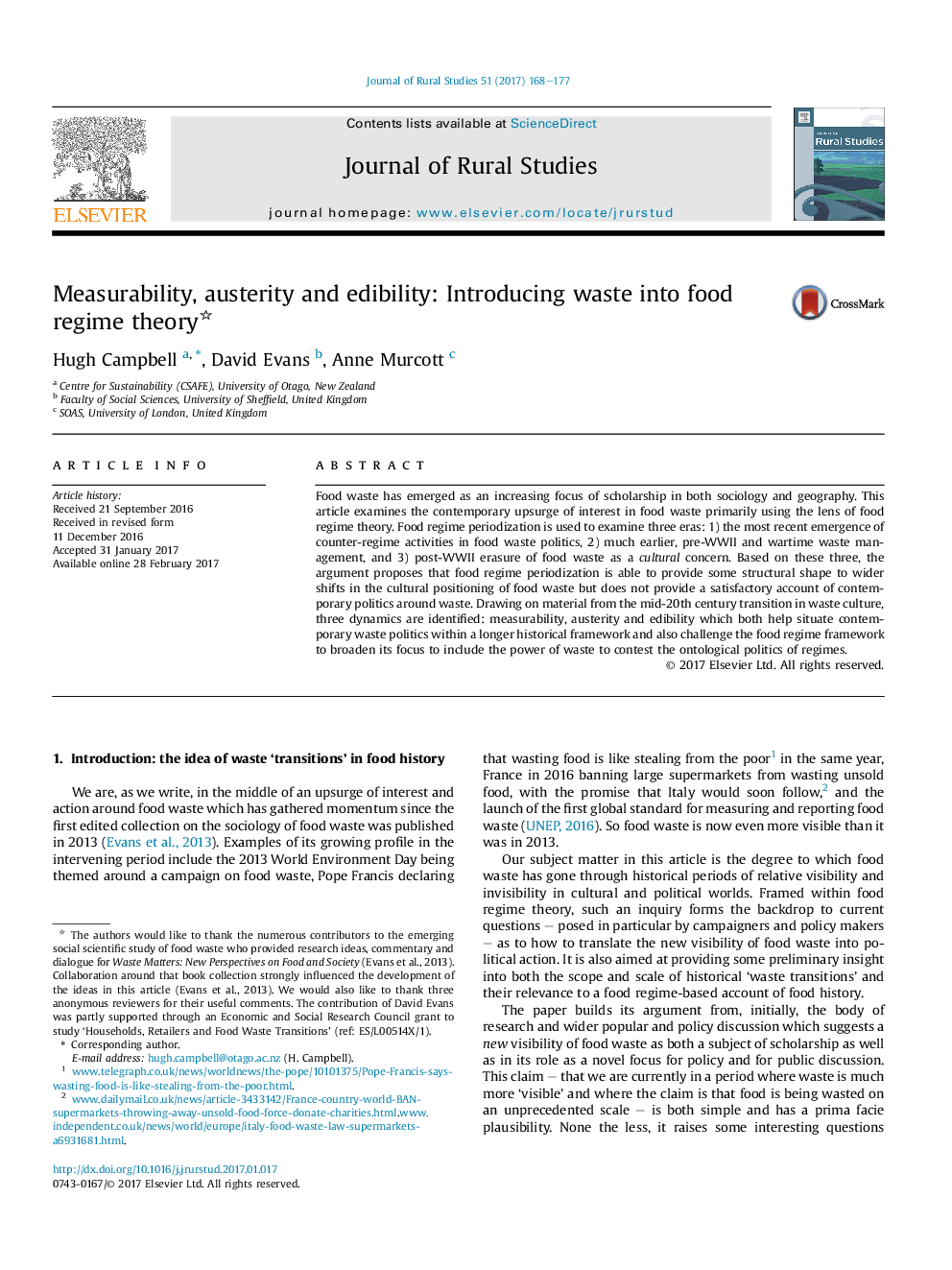| Article ID | Journal | Published Year | Pages | File Type |
|---|---|---|---|---|
| 6460138 | Journal of Rural Studies | 2017 | 10 Pages |
â¢Current interpretations of a significant 'transition' in the cultural norms and politics of food waste are challenged.â¢Food waste is introduced as an element of a re-examination of food regime history in the 20th Century.â¢A revised food regime theorisation is proposed using waste to demonstrate the ontological character of cultural erasure in food regimes.â¢The current 'transition' is reframed as a political moment of challenge to food regime erasure of waste in prior eras.
Food waste has emerged as an increasing focus of scholarship in both sociology and geography. This article examines the contemporary upsurge of interest in food waste primarily using the lens of food regime theory. Food regime periodization is used to examine three eras: 1) the most recent emergence of counter-regime activities in food waste politics, 2) much earlier, pre-WWII and wartime waste management, and 3) post-WWII erasure of food waste as a cultural concern. Based on these three, the argument proposes that food regime periodization is able to provide some structural shape to wider shifts in the cultural positioning of food waste but does not provide a satisfactory account of contemporary politics around waste. Drawing on material from the mid-20th century transition in waste culture, three dynamics are identified: measurability, austerity and edibility which both help situate contemporary waste politics within a longer historical framework and also challenge the food regime framework to broaden its focus to include the power of waste to contest the ontological politics of regimes.
